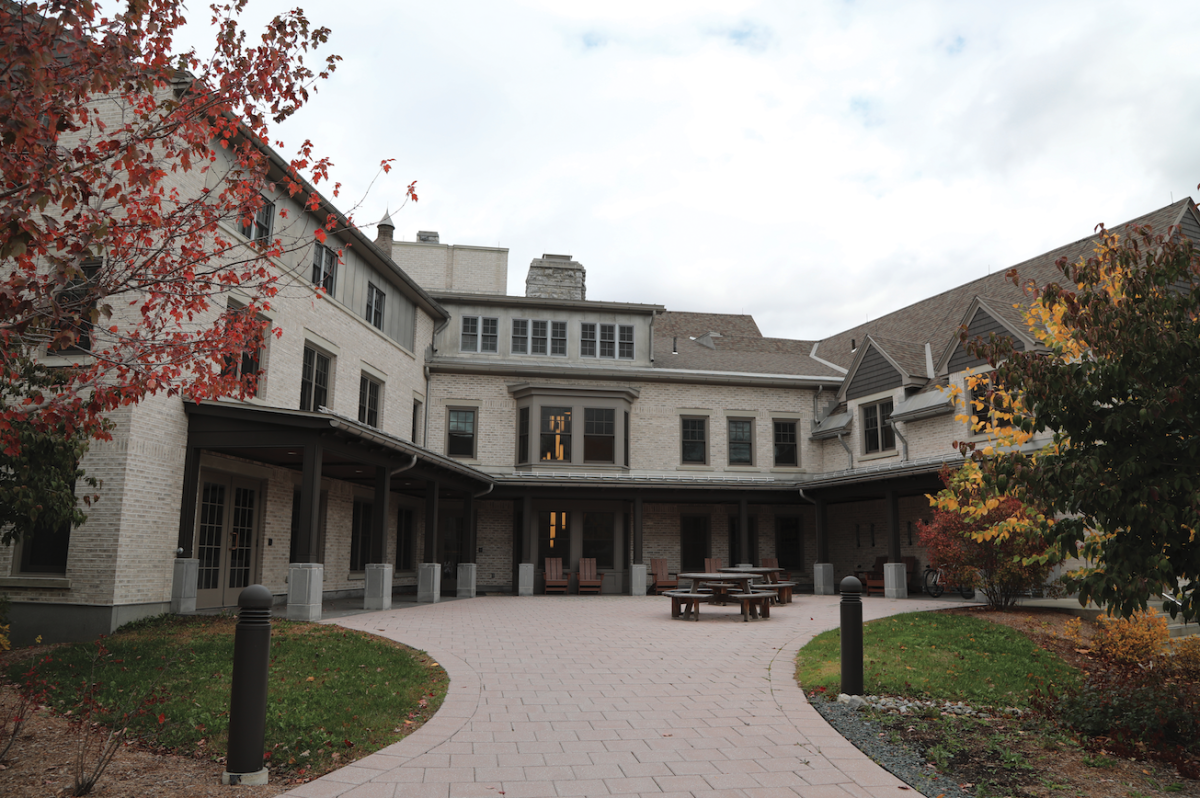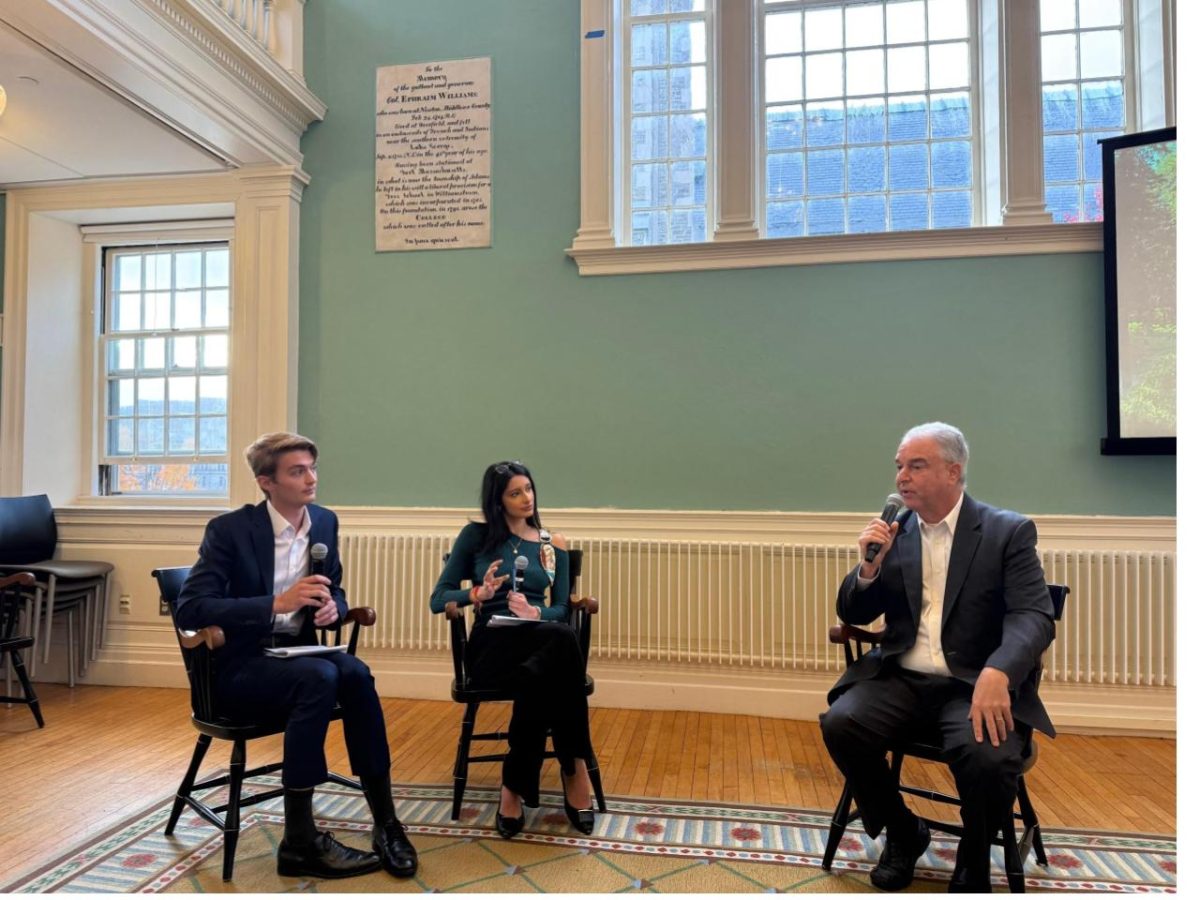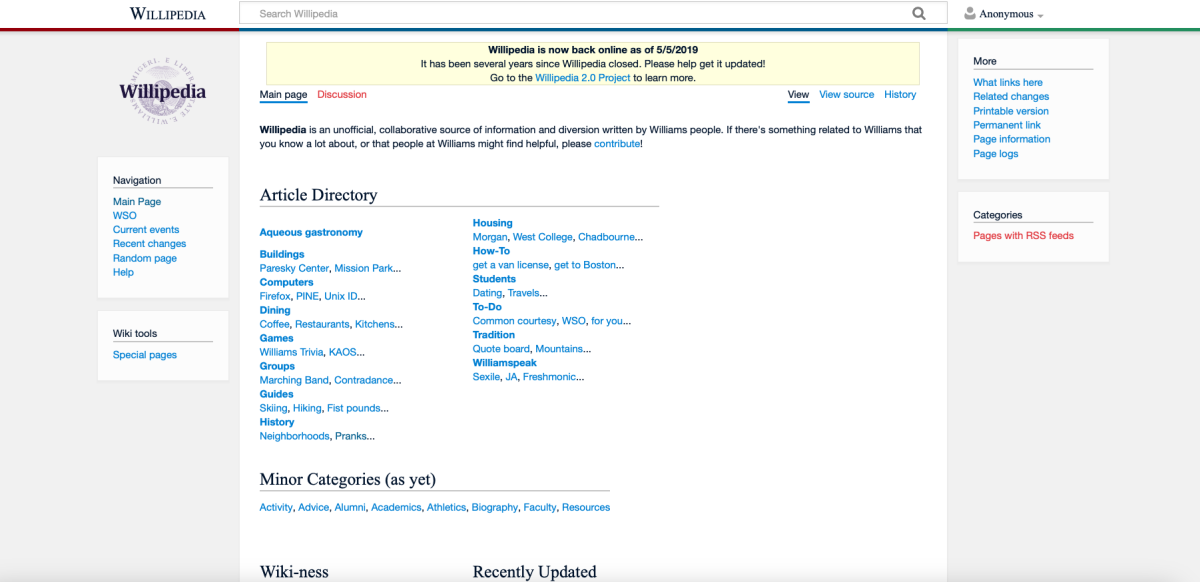Last Tuesday, the College announced that it received a $153,000 grant from the Andrew W. Mellon Foundation in support of the Islandora for All project. Islandora is an open-source software framework meant to consolidate and publicize faculty scholarship. The College has been using Islandora since 2012 and recently helped to develop the software to improve it for all participating institutions. Islandora for All, an offshoot of the Islandora Foundation and the target of the grant, aims to make the Islandora platform more accessible and to enhance its features.
David Keiser-Clark, Islandora for All project manager and academic application developer at the College, explained that Islandora for All is adding features to Islandora to make it a competitive alternative to other popular institutional repositories such as Bepress or publishing platforms like Academia.edu. Islandora is distinguished by its open-source software, meaning that there is no upfront cost for acquiring or downloading it. The main cost is implicit, coming from the effort needed to download, maintain and develop the software at each institution that wants to use it. Other competing platforms, Keiser-Clark mentioned, are either not open access or monetize the scholarly research that is contributed to their platforms.
The grant will first allow Keiser-Clark and the rest of the College’s Islandora for All team to address these challenges and make the software more accessible. This aim is under the purview of Islandora for All’s Islandora Enterprise (ISLE) project. One way ISLE improves Islandora’s accessibility is by reducing the complexity and time necessary to download the Islandora software. Prior to ISLE, Keiser Clark noted, “It was a big challenge for Williams and other schools to update their Islandora servers,” as the server stack consists of over 80 open-source software applications, each of which requires separate treatment. Keiser-Clark offered an explanatory analogy. “Instead of building a car by purchasing and assembling all the parts from scratch, it would be easier to buy the car already assembled. With ISLE, we have preassembled the Islandora server stack … to create a more accessible platform for educational institutions.”
Moreover, ISLE also aims to make Islandora’s software depend as little as possible on the specific versions of any external software packages it is using. This way, when those packages are updated, the Islandora software continues to function seamlessly. Through this effort toward accessibility, Islandora for All aims to reduce the financial barrier to its product and make it available to institutions everywhere. “We hope that this project will achieve scholarly publishing solutions for a wider variety of institutions, such as historically black colleges and universities, liberal arts colleges, community colleges, tribal colleges and more,” Keiser-Clark said.
The second project of Islandora for All that is supported by the grant is the Liberal Arts Sprint for Institutional Repository (LASIR) project, which intends to enhance the features of the Islandora software after it is downloaded. These features include better integrating faculty research with Google Scholar searches and generating analytics for participating faculty members to view how often and where their work is downloaded. Right now, faculty do not have a centralized platform where they can post their publications for free. “Our current collection for faculty publications has rich content but is not connected with other scholarly networks,” Keiser-Clark said. Developing LASIR further will allow faculty to post their scholarship on Islandora and push it out to other academic networks that faculty members care about.
While the College has consistently received one or two Mellon grants per year since 2011, the grant for Islandora is one of only two that has not been directly meant for a project of the faculty or administration. Of the 12 Mellon grants that the College has received in the past seven years, five have been for the Mellon Mays Undergraduate Fellowship, which aims to to “increase diversity in the faculty ranks of institutions of higher learning”; three for the New Direction Fellowship, which works to “assist faculty members in the humanities and humanistic social sciences who seek to acquire systematic training outside their own areas of special interest”; and one each for promoting the long-term residency of faculty choreographers on campus, strengthening the College’s international academic programs, funding the initiatives of former President of the College Adam Falk; and “strengthen[ing] the development of digital resources and academic uses of the collections of the Williams College Museum of Art.” Though Islandora’s development will benefit the faculty’s sharing of scholarship in the long-run, the project is primarily managed by the College’s staff. In particular, the project is an instance of joint work between the College’s Office of Information and Technology (OIT) and its library staff. “By blending our OIT and library, we are taking part in a trend occurring in institutions of higher education across the country,” Keiser-Clark said. Not only is this setup important for the library’s growth, but it is also a valuable professional experience for the staff involved. “It’s been a really wonderful learning experience for staff from different departments to
collaborate together.”








